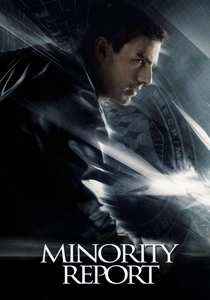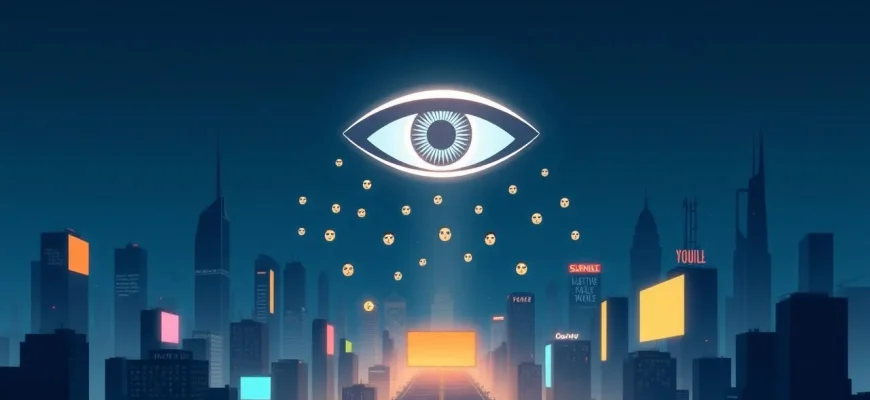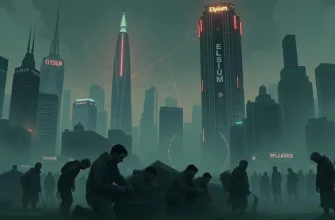In an era where privacy is increasingly under threat, science fiction films have often explored the theme of surveillance, offering both cautionary tales and thrilling narratives. This curated list of 10 sci-fi films delves into the dark side of surveillance, where technology can both protect and oppress. From dystopian futures to high-tech espionage, these movies provide a fascinating look at how surveillance can shape societies and individual lives, making for an engaging watch for anyone intrigued by technology's impact on privacy and freedom.

THX 1138 (1971)
Description: George Lucas's debut feature film is set in a dystopian future where citizens are controlled through drugs and surveillance, exploring themes of individuality versus conformity.
Fact: The film was originally a student project at USC, later expanded into a feature film with the help of Francis Ford Coppola.
 Watch Now
Watch Now 
Brazil (1985)
Description: Terry Gilliam's dystopian satire features a world where bureaucracy and surveillance are omnipresent, offering a darkly comedic take on the surveillance state.
Fact: The film was nominated for two Academy Awards and has since become a cult classic for its unique visual style and dark humor.
 Watch Now
Watch Now 
Enemy of the State (1998)
Description: While not strictly sci-fi, this thriller showcases advanced surveillance technology used by the NSA, making it relevant to the theme of surveillance in modern society.
Fact: The film was one of the first to explore the concept of mass surveillance in a post-Cold War context.
 Watch Now
Watch Now 
The Matrix (1999)
Description: Although primarily known for its virtual reality theme, "The Matrix" also explores the concept of surveillance through the omnipresent control of the machines over humanity, making it a fitting addition to this list.
Fact: The film introduced the concept of "bullet time" photography, which became iconic in action cinema. It also won four Academy Awards for its groundbreaking visual effects.
 Watch Now
Watch Now 
Minority Report (2002)
Description: Set in a future where crimes are predicted and prevented before they happen, this film delves into the ethical implications of pre-crime surveillance and the loss of free will. It's a perfect blend of action and philosophical inquiry.
Fact: The film was based on a short story by Philip K. Dick. Steven Spielberg used advanced motion capture technology to create the futuristic interfaces seen in the movie.
 Watch Now
Watch Now 
Equilibrium (2002)
Description: In this dystopian future, emotions are outlawed, and surveillance is used to enforce this rule. The film explores the theme of control through surveillance and the human desire for freedom.
Fact: The film's gun kata fighting style was developed specifically for the movie, blending martial arts with gunplay.
 Watch Now
Watch Now 
The Lives of Others (2006)
Description: While not strictly sci-fi, this film's exploration of surveillance in East Germany during the Cold War provides a chilling backdrop for understanding the psychological impact of being watched. Its inclusion in this list highlights the timeless nature of surveillance themes.
Fact: The film won the Academy Award for Best Foreign Language Film in
 Watch Now
Watch Now 
A Scanner Darkly (2006)
Description: Based on Philip K. Dick's novel, this animated film uses rotoscoping to depict a future where undercover narcotics agents are monitored by their own government, blurring the lines between surveillance and paranoia.
Fact: The film uses a unique animation technique called interpolated rotoscoping, giving it a distinctive visual style.
 Watch Now
Watch Now 
The Adjustment Bureau (2011)
Description: This film delves into the idea of a secret organization that controls human destiny through surveillance and manipulation, questioning the notion of free will.
Fact: The film is loosely based on a Philip K. Dick short story, continuing the trend of his works being adapted into films exploring surveillance themes.
 Watch Now
Watch Now 
The Circle (2017)
Description: This film examines the consequences of a tech company's quest for total transparency, where surveillance becomes a tool for both personal and societal control.
Fact: The film is based on the novel by Dave Eggers, and it features a cameo by the author himself.
 Watch Now
Watch Now 








